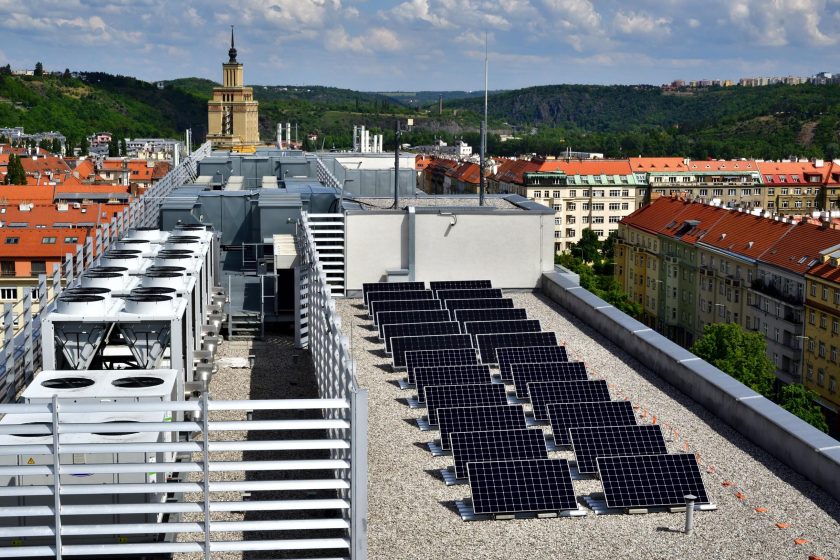Autor: Ing. Petr Kadera, Ph.D., vedoucí skupiny Inteligentní systémy CIIRC ČVUT, NCP40

Flexible industrial production: the key to ensuring the stability of the energy networks of the future
The Czech energy system faces great challenges. The main change we are currently going to have to deal with is ensuring a balance between production and consumption. So far, this has been addressed with fossil fuels mainly on the electricity generation side, now the consumption side will also have to contribute and dynamically adapt its energy consumption to the current situation in the distribution network.
At CIIRC ČVUT, research infrastructure is being set up within the RICAIP Center of Excellence, which will enable the development of solutions based on close information interconnection of energy production and consumption, the so-called Smart Grid. The production side is represented by a set of photovoltaic panels and physical simulators of photovoltaic panels (DC sources). Several devices can act as a source or appliance, depending on the current situation. These are mainly two battery storages and a pair of so-called grid simulators, which are reversible AC sources that can supply or take an electrical signal from the network with precisely given and repeatable parameters. By combining these components with the MathWorks dSPACE real-time simulation environment, these components will allow the laboratory to establish the conditions that arise in the distribution network through the interaction of thousands of real devices.
The consumption side is represented by the equipment of laboratories focused on production systems. These are mainly different types of robots, machine tools and conveyor systems. The individual devices will be connected to the laboratory network via measuring elements, which will enable detailed monitoring of the course of the electrical signal. Precise coordination of the activities of individual components requires reliable and fast communication. This will be ensured in our laboratories thanks to the first installation of T-Mobile’s 5G SA infrastructure, which is currently under construction and should be put into operation in the near future.
The created laboratory environment will enable the development and testing of new methods for energy flow management for industrial and residential applications. One of the first research topics that the laboratory will deal with will be energy management in manufacturing companies. The solution will be based on the extension of current digital models of production machines by a model of their energy intensity related to individual production operations. The MathWorks dSPACE simulation tool allows you to create many instances from the identified models, which can run in parallel within the simulation. The complex model will thus correspond in its complexity to the real production plant and will make it possible to monitor the impact on the course of energy intensity of a given production configuration in a specific production schedule and how we can influence it by its modifications.
The entire system will be operational at the end of 2021 and will enable CTU researchers to participate intensively in the development of energy-responsible and long-term sustainable means of production.
